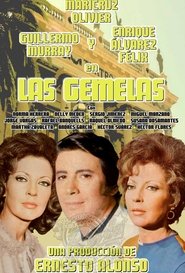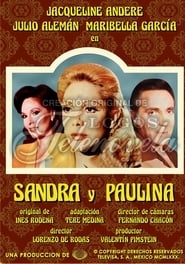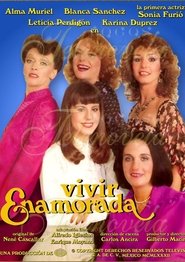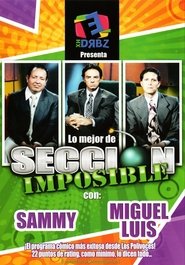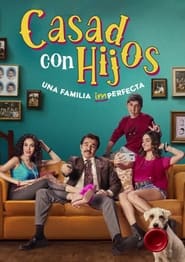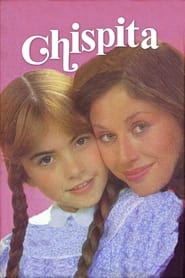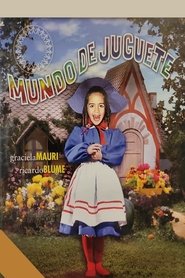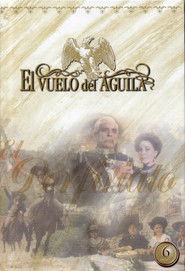Las Estrellas TV Series - Page 21
-
Las gemelas
1972
Las gemelas
1972
-
Sandra y Paulina
1980
Sandra y Paulina
1980
-
Cachún cachún ra ra!
0000
Cachún cachún ra ra!
0000
Cachún cachún ra ra! was a Mexican comedy series that was produced from 1981 to 1987 for Televisa. Cachún cachún ra ra! was a teen comedy show whose setting was in highschool. In addition to the usual trials and traumas of adolescence, the students of the school had to contend with the wrath of their nasty school principal, a woman who's been dubbed "Godzilla." It is remembered as one of the most entertaining comedic shows of the 1980s in Mexico. The show set the stage for future Hispanic television sitcoms. -
Vivir enamorada
1982
Vivir enamorada
1982
-
Viviana
1978
Viviana
1978
A poor but beautiful woman comes to the city looking for her husband ... who is married to another woman, the evil Gloria. While she falls in love to a handsome and good hearted doctor, she decides to work at nights to earn money at a "Model School" which is, in reality, a high profile brothel... -
Casados Con Hijos
2024
star 8.2A family story that reveals the experience of a former American football player who has become an unfortunate shoe store manager. We will accompany you on your adventures with your wife, children and neighbors. Love, friendship, family dynamics and a lot of humor in one broadcast! -
Cantando por un sueño
0000
star 5.5Cantando por un Sueño is a television contest produced by the Mexican television network Canal de las Estrellas which also aired on Univision in the United States. As with its twin show Bailando por un sueño, celebrities are paired with common, everyday people. However, in Cantando por un Sueño, contestants have to sing, rather than dance to impress the panel of judges and win. The panel of judges is made up of famous Latin American singers. Prizes generally include costly interventions to help people in unfortunate situations including blindness, deafness, paralysis, mortal diseases, bankruptcy, etc. Mexican singer Thalía is the 'godmother' of this contest, and she sings the title song of the show too. Cantando por un Sueño had three seasons of about seven episodes each and concluded in a final fourth season Called "Reyes de la Canción" where the winners, runner-ups and 3rd place finishers of the first three seasons compete in a final showdown.. -
Nueva Vida
2013
Nueva Vida
2013
-
Mujeres de Negro
2016
star 6.5Three women are gathered at a cabin with their three colleague husbands when they watch the men blow up in the boat just going out fishing. A police man investigates the widows, who will have to try to explain what happened. -
Chispita
0000
star 7.1Chispita is a telenovela made by Mexican TV network Televisa. It is a familiar telenovela, set in Mexico. This telenovela was broadcast in 1983. This was the first telenovela that Lucero starred as a main character. -
Más vale sola
2024
Más vale sola
2024
-
Mundo de Juguete
1974
star 10Mundo de Juguete is a telenovela produced in Mexico by Televisa in 1974. It is a remake of telenovela Papá Corazón. This telenovela holds the record for having the second longest run ever for a Latin American telenovela, with a total of 605 episodes. Most telenovelas run for an average of six to eight months; the shortest ones run about four months, and the longest up to a year. Many "Mundo de Juguete" fans believe that either all or some of the tapes and film from the telenovela were lost when Televisa collapsed during the 1985 earthquake. Televisa has been secretive regarding which tapes were lost during that earthquake, so there is no way of confirming this. However, such claims can be disputed, considering that the Telenovela has been repeated on television several times after 1985. During the nineties, it was repeated on Mexico City Canal 9. For a period of time, it was also shown on Unicable or on Telenovelas Televisa remade the telenovela in 2000, and called it "Carita de Angel". -
Campus de sombras
2013
Campus de sombras
2013
-
Monteverde
2025
Monteverde
2025
"Monteverde" is an upcoming Mexican telenovela produced by Lucero Suárez for TelevisaUnivision. It's a an adaptation of 2018-2019 Chilean telenovela "Isla Paraíso' which will start airing on June 16, 2025. -
Si tú supieras... María Isabel
0000
María Isabel is a Mexican telenovela, which was produced and broadcast by Televisa in 1997. Starring Adela Noriega, Fernando Carrillo and Lorena Herrera. María Isabel, is one of the few telenovelas that focuses on the life of an indigenous female protagonist and her community. The original story was written by Yolanda Vargas Dulché and the TV version was adapted by René Muñoz. -
El vuelo del águila
1994
El vuelo del águila
1994
-
El derecho de nacer
0000
El derecho de nacer
0000
